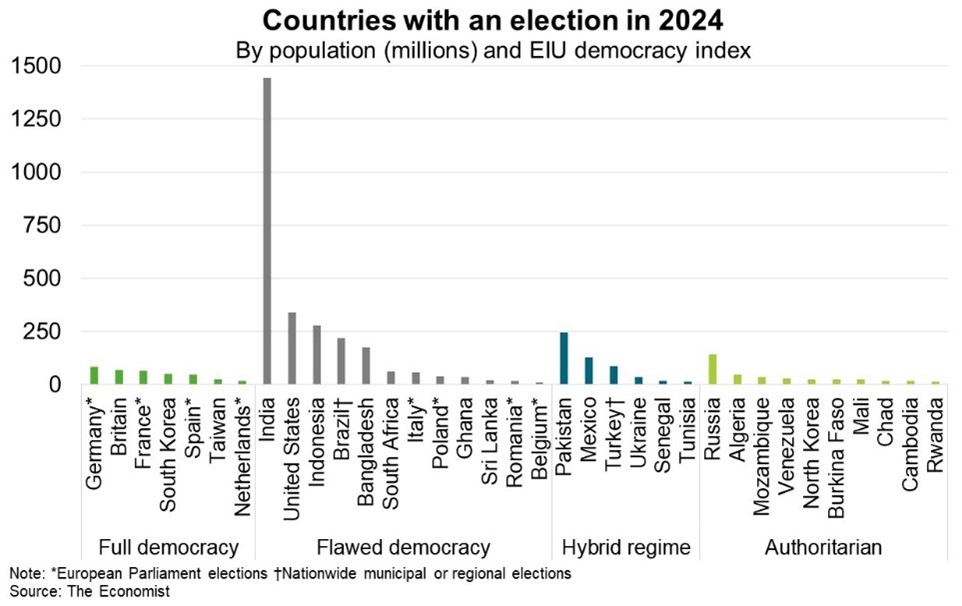World—Record elections scheduled in 2024 increase policy uncertainty
Record elections scheduled in 2024 increase policy uncertainty
Elections in which all voters can cast a ballot are scheduled in 76 countries next year, according to The Economist. These countries are home to 4.2 billion people—over half the global population. Indeed, elections will take place in eight of the world’s ten most populous countries—India, US, Indonesia, Pakistan, Brazil, Bangladesh, Russia and Mexico (Chart). In countries like Brazil and Turkey, elections will be local or municipal but the whole country will participate. Similarly, the 27 member states of the European Union will elect the bloc’s next parliament.
Some elections will exert little meaningful influence on governments, given they will not be free and fair. Of the 71 countries with elections scheduled in 2024 that are covered by the Democracy Index, 28 fail the essential conditions for a democratic vote, such as freedom of speech and association. In particular, voting is unlikely to induce regime change in countries the Economist Intelligence Unit categorises as ‘authoritarian’, like Russia, Algeria and Venezuela. Worsening political freedom has an economic cost. Research suggests that democracy substantively increases economic development; with a positive average effect on GDP per capita of around 17% in the long run.
However, in democratic countries, elections will decide the next government, test fiscal discipline and potentially prompt substantial public policy changes. Among Australia’s largest export markets, influential elections will occur in South Korea, India, Taiwan, Indonesia and the US and UK. In particular, the outcome of Taiwan’s presidential election in January will influence its relationship with China. In November, US voters will elect their next president, House of Representatives and a third of the Senate, with important global economic and political implications. The crowded election outlook will likely see the Global Economic Policy Uncertainty Index remain elevated in 2024.

